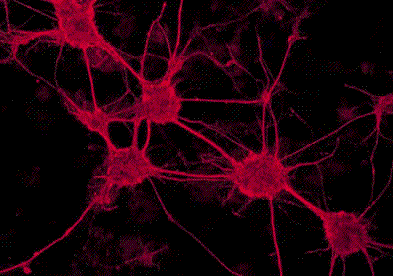« Postdoc at Columbia | Main | What is Behavioral Economics? »
April 10, 2005
What is Neuroeconomics?
NEUROECONOMICS:

Neuroeconomics is a multidisciplinary research field incorporating neuroscience, economics, and psychology aimed at developing an understanding of how we make choices. It looks at the brain when we evaluate decisions, categorize risks and rewards, and when we interact with others. (from Wikipedia)
"Neuroeconomics is an interdisciplinary research program with the goal of building a biological model of decision making in economic environments. Neuroeconomists ask, how does the embodied brain enable the mind (or groups of minds) to make economic decisions? By combining techniques from cognitive neuroscience and experimental economics we can now watch neural activity in real time, observe how this activity depends on the economic environment, and test hypotheses about how the emergent mind makes economic decisions. Neuroeconomics allows us to better understand both the wide range of heterogeneity in human behavior, and the role of institutions as ordered extensions of our minds." (from the Neuroeconomics Explained post from professor Kevin McCabe's Weblog)
RECENT NEUROECONOMICS ARTICLES:
* From The New York Times: Brain Experts Now Follow the Money:
"People are efficient, rational beings who tirelessly act in their own self-interest. They make financial decisions based on reason, not emotion. And naturally, most save money for that proverbial rainy day. Right?... Well, no. In making financial decisions, people are regularly influenced by gut feelings and intuitions. They cooperate with total strangers, gamble away the family paycheck and squander their savings on investments touted by known liars...
Such human frailties may seem far too complicated and unpredictable to fold into economic equations. But now many neuroscientists are beginning to argue that it is time to create a new field of study, called neuroeconomics...
To explore economic decision-making, researchers are scanning the brains of people as they engage in a variety of games designed by experimental economists. The exercises are intended to make people anticipate what others will do or what others will infer from the person's own actions. These researchers are busy scanning the brains of people as they make economic decisions, barter, compete, cooperate, defect, punish, engage in auctions, gamble and calculate their next economic moves. Based on their understanding of how fluctuations in neurons and brain chemicals drive those behaviors, the neuroscientists are expressing their findings in differential equations and other mathematical language beloved by economists...
The brain needs a way to compare and evaluate objects, people, events, memories, internal states and the perceived needs of others so that it can make choices. It does so by assigning relative value to everything that happens. But instead of dollars and cents, the brain relies on the firing rates of a number of neurotransmitters — the chemicals, like dopamine, that transmit nerve impulses. Novelty, money, cocaine, a delicious meal and a beautiful face all activate dopamine circuits to varying degrees; exactly how much dopamine an individual generates in response to a particular reward is calibrated by past experience and by one's own biological makeup."
* From Business Week: Why Does logic often takes a backseat in making decisons?: This question may suggest that the study of neuroeconomics may topple the notion of rational decision-making.
"The National Hockey League and its players wrangle over a salary cap. The impasse causes the season to be canceled. Everybody loses. What went wrong?
According to the new science of neuroeconomics, the explanation might lie inside the brains of the negotiators. Not in the prefrontal cortex, where people rationally weigh pros and cons, but deep inside, where powerful emotions arise. Brain scans show that when people feel they're being treated unfairly, a small area called the anterior insula lights up, engendering the same disgust that people get from, say, smelling a skunk. That overwhelms the deliberations of the prefrontal cortex. With primitive brain functions so powerful, it's no wonder that economic transactions often go awry. "In some ways, modern economic life for humans is like a monkey driving a car," says Colin F. Camerer, an economist at California Institute of Technology."
* From The Princeton Weekly Bulletin: Take it or Leave It: Brain imaging study reveals interplay of thought and emotion in economic decisions. By Steven Schultz
* From PLoS Biology: A Neuroeconomics Approach to Inferring Utility Functions in Sensorimotor Control:
Economists use the concept of a utility function, which increases with increasing desirability of the outcome, to characterize human decision-making about physical movement.
* From Science: Separate Neural Systems Value Immediate and Delayed Monetary rewards: by Samuel McClure, David Laibson, George Loewenstein and Jonathan Cohen. Are the two birds in the bush a better choice than the one in your hand?
*From Science: The Involvement of the Orbitofrontal Cortex in the experience of regret: Neural responses associated with regret in gambling tasks.
Posted by DSN at April 10, 2005 06:21 PM